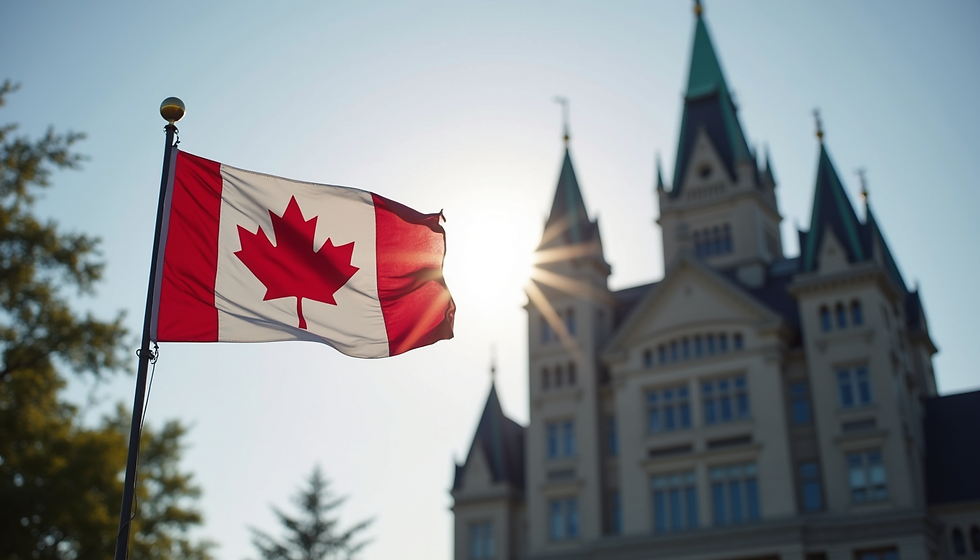Canada's Whistleblowing Dilemma: An Editorial on the Implications of the AARUNI Abhishek vs TD Case
- aaruniabhishek

- Aug 18, 2025
- 4 min read
Updated: Aug 25, 2025
In recent years, the issue of whistleblowing in Canada has come under intense scrutiny. The AARUNI Abhishek vs TD case , , has raised pivotal questions about the protections available to whistleblowers. As of 2025, the office of the privacy commissioner of canada has made it clear that it will not investigate complaints unless they directly affect the whistleblower. This decision has troubling implications, indicating that people in regulated sectors may think twice before reporting unethical or illegal actions, fearing they will not be shielded from backlash.
The repercussions of this ruling are immense, especially for employees in industries where ethical behavior is crucial. Whistleblowers serve as vital instruments for exposing wrongdoings like privacy breaches, financial fraud, and other unethical behavior. However, current policies in Canada raise significant doubts about the safety and security for those who decide to speak up.
The Context of Whistleblowing in Canada
Whistleblowing is inherently complex and intersects with law, ethics, and public policy. Canada has a legal framework intended to protect those who report misconduct, but the effectiveness of these safeguards has come into question recently.
The AARUNI Abhishek vs TD case marks a critical turning point in this ongoing discussion. By stating that only complaints affecting the whistleblower would be investigated, the OPC has limited the scope of whistleblower protections. For example, if an employee witnesses financial fraud that could harm the company but does not threaten their job directly, they might feel dissuaded from reporting a crime that could cost their company millions.
This kind of chilling effect undermines the essence of whistleblowing laws, as potential whistleblowers may choose silence rather than face the possibility of ostracism or retaliation.
The Implications of the OPC's Decision
The OPC's ruling carries far-reaching implications for whistleblowers in Canada. By narrowing the criteria for investigation to only self-interested cases, the OPC communicates that those observing misconduct may be unsupported unless their personal stakes are involved.
This change raises serious ethical concerns regarding the roles of organizations and regulatory bodies. If reporting misconduct becomes a risky endeavor, a culture of silence can thrive, allowing unethical practices to flourish unchecked. A report by the Ethics and Compliance Initiative states that organizations with weak reporting mechanisms can experience a 24% increase in unethical behavior.
The Role of Ethics in Whistleblowing
Ethics are crucial in the whistleblowing process. Individuals who decide to report wrongdoing often do so from a sense of moral duty, thinking they are protecting the public interest. However, the OPC's ruling complicates this moral landscape.
Organizations have an ethical responsibility to foster an environment where employees feel safe reporting issues. For instance, developing a whistleblower hotline, providing clear reporting guidelines, and ensuring anonymity can go a long way. A study revealed that organizations with strong whistleblower protections not only see a significant drop in unethical practices but also enhance employee morale.
The Impact on Regulated Industries
The implications of the OPC's decision are especially alarming in regulated industries, like finance and healthcare, where compliance is vital. Whistleblowers often have insights into unethical activities that might not be evident to regulators. For instance, in the financial sector, a report from the Association of Certified Fraud Examiners noted that whistleblower tips are a critical source for uncovering fraud, accounting for over 40% of cases.
If individuals fear that their reports will not be understood or valued, they may remain silent. This silence can threaten consumers, employees, and the wider public. The lack of motivation for whistleblowers can weaken the integrity of these industries and erode public trust.
The Need for Comprehensive Whistleblower Protections
In light of the current situation, Canada urgently needs extensive whistleblower protections. Policymakers must understand the importance of encouraging individuals to report wrongdoing without the fear of retaliation. Comprehensive protections should include not only legal safeguards but also institutional support.
Organizations are encouraged to implement robust whistleblower policies that establish clear protocols for reporting misconduct while ensuring individuals feel safe coming forward. Additionally, regulators should take a proactive stance in investigating all complaints, regardless of whether the whistleblower is personally affected.
The Role of Legal Professionals and Journalists
Legal professionals and journalists are vital advocates for whistleblower protections. Lawyers can advise whistleblowers about their rights and available legal protections, while journalists can investigate and highlight unethical practices. The combination of these efforts can enhance public understanding and support for whistleblowers.
Collaborating, legal experts and journalists can create a culture that values accountability and transparency. This partnership is essential for ensuring that whistleblowers are acknowledged and that their reports are treated with the seriousness they deserve.
The Path Ahead
The AARUNI Abhishek vs TD case exposes serious flaws within Canada's whistleblower protection framework. The OPC's decision sets a concerning precedent that may discourage people from reporting misconduct.
As Canada looks toward the future, it is critical that lawmakers, organizations, and citizens recognize the importance of safeguarding whistleblowers. By establishing a culture of transparency and responsibility, Canada can encourage more individuals to report unethical practices. Only through these measures can industries uphold integrity and protect public interest.
In an age where privacy violations and unethical behavior are becoming increasingly common, the need for solid whistleblower protections is more pressing than ever. Canada must act decisively to ensure that those who choose to expose wrongdoing are supported, defended, and heard.

Let me know






Comments